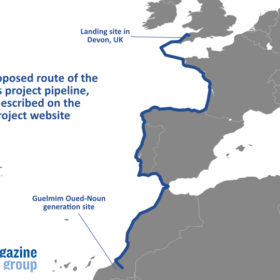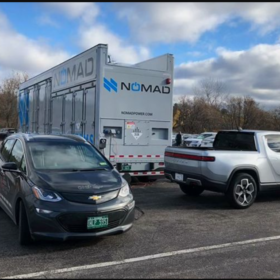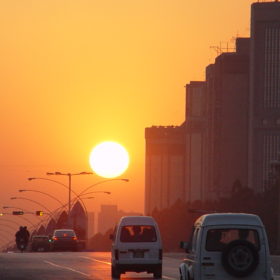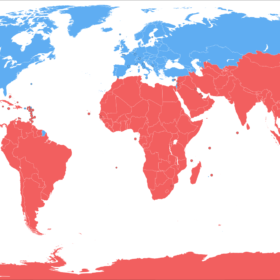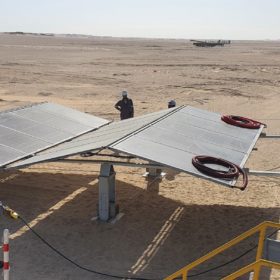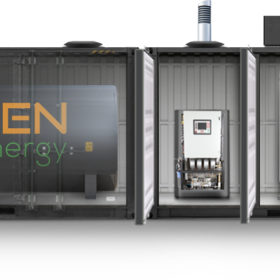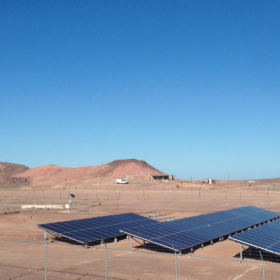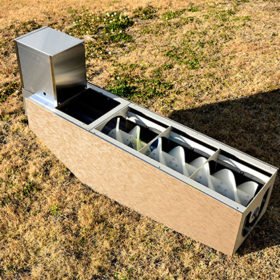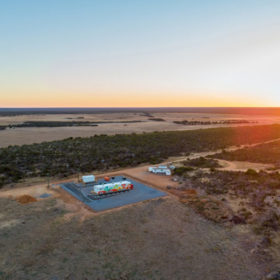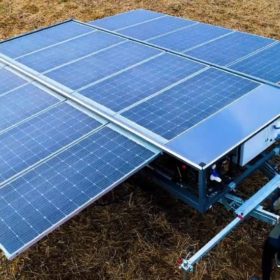Next year will bring micro and mega grids
This year has witnessed upheaval in the global energy system as inflation, geopolitical conflict, and the reality of a changing climate continue to drive the transition to cleaner energy. Next year, these trends are likely to continue and accelerate as renewable energy adoption continues to grow and the inextricable link between energy security and national security is increasingly recognized. Alan Greenshields, of US-based iron-salt flow battery maker ESS Inc, offers four predictions for 2023.
New mobile lithium-ion batteries for utility-scale market
US-based Nomad Transportable Power Systems (NOMAD) has started offering plug-and-play, utility-scale mobile energy storage systems. There are three versions – 2 MWh, 1.3 MWh, and 660 kWh – with a patent-pending docking platform.
Pakistan approved 280 MW of solar in 2021-22
Pakistan’s National Electric Power Regulatory Authority (Nepra) has published its annual report for the 2021-22 financial year. The regulator granted nine licenses for solar projects, totaling 44.74 MW of installed capacity, and 7,032 net-metering licenses for a total of 243.43 MW.
The Global South’s solar e-waste problem
An international research group has examined the structural barriers to addressing the solar e-waste problem in the Global South. They argue that the focus should be on repairing devices, rather than recycling them.
Mobile solar-plus-storage unit for offgrid applications
Enerwhere has designed a solar-plus-storage mobile unit for offgrid locations such as oil and gas fields and construction sites. It can be adapted to different needs and is scalable up to megawatt-scale projects.
The mobility rEVolution: Microgrid for EV charging, hydrogen fueling, backup power
The EU Parliament has voted to end combustion vehicle sales in 2035, Siemens has announced plans to develop wireless charging for electric vehicles, and Lightyear has launched the final design of its long-range, production-ready solar car.
Power-to-gas-to-power designs to incorporate hydrogen in solar-wind microgrids
Researchers in Mexico have looked at integrating hydrogen-based power-to-gas-to-power into an existing rural microgrid. They said this solution could become competitive if electrolyzer, fuel cell and hydrogen tank costs are halved, or if diesel prices keep rising.
Ricoh launches mini hydropower system for remote locations, usable with solar-plus-storage
The pico-hydro generation system can be used with factory drainage systems and irrigation canals. According to the manufacturer, it is made with 3D-printed sustainable materials and is able to generate electricity even with a small stream of water. Solar and storage may be linked to the system to ensure stable power supply.
Australia’s largest microgrid goes online
The Western Australian coastal town of Kalbarri can now be powered by an entirely renewable energy solution utilizing rooftop solar and wind generation coupled with battery storage with state government-owned utility Western Power confirming the state’s largest renewable energy microgrid has been commissioned.
Solar trailer for off-grid applications from France
Developed by French start-up Ecosun, the trailer is equipped with 15 solar panels with output of 360 W and batteries with a storage capacity of 23 kWh. It can be used for construction sites, military camps and water pumping systems.
